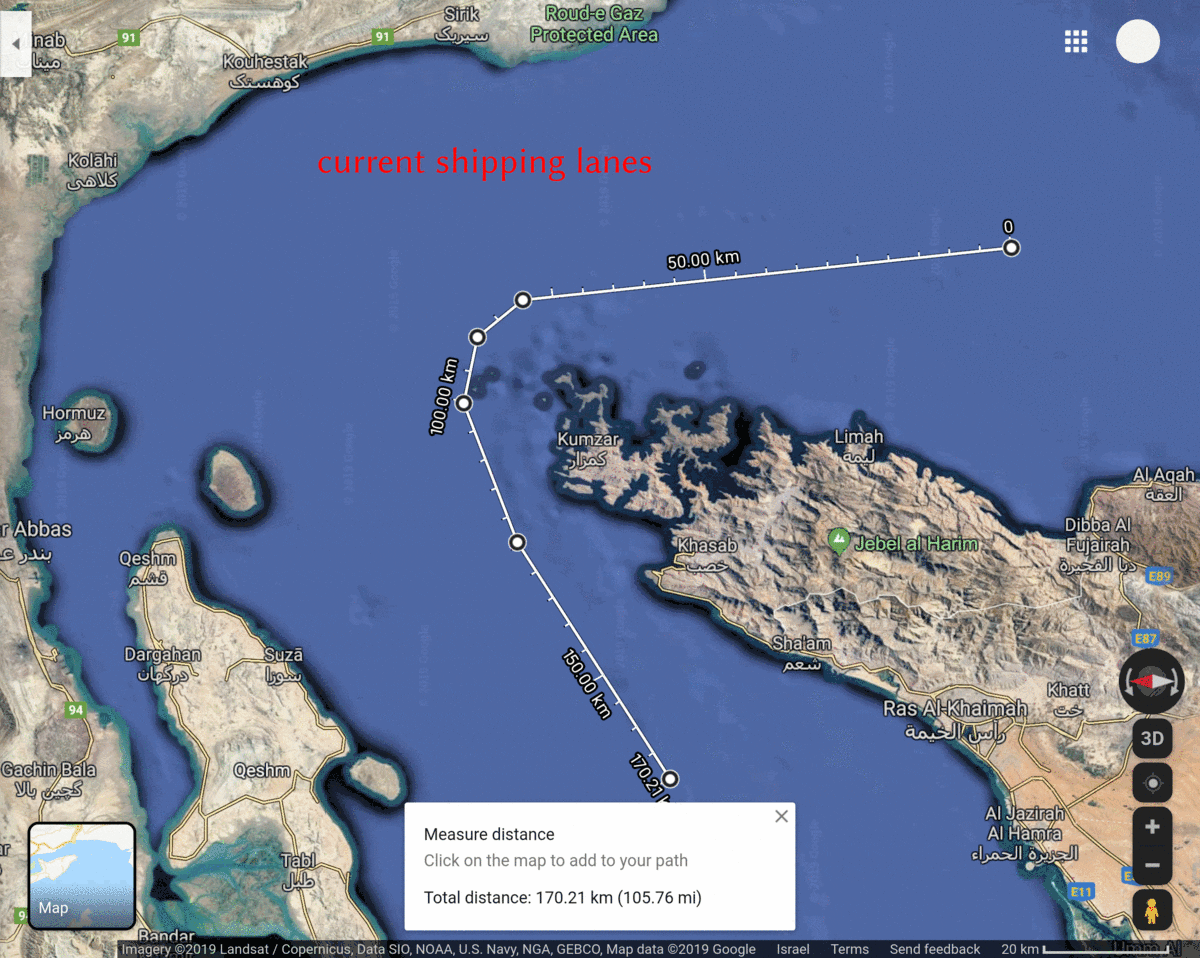In recent weeks the tensions in the Strait of Hormuz has been the highest in years [1], since Iran does not recognize any of the water in the Strait of Hormuz as being International Water, and given their seizing of a UK tanker in a retaliatory measure (said to have been done in Omani waters [2]), and their vow "to secure" the Strait [3], subsequently, US Under Secretary of Defense for Policy John Rood said the following at the Aspen Security Forum [4]:
We are starting a concept called Sentinel in which we will have a series of countries engaged to preserve the free and open passage of commerce in the Strait of Hormuz and in the Persian Gulf
In practice the Sentinel seems to be the UK Navy joining [5] the US Navy in patrolling and guarding the coastal waters of Kumzar, Oman (before this, US Navy did not intervene in the Iranian seizure of the UK tanker), with permission from Oman.
Given that Iran currently has mines in the Strait [6], the conclusion of this PBS cited [7] study [8] "from independent analysts":
If Iran managed to lay even a relatively small number of these mines in the strait, the United States certainly would act to clear the area. But the experience of past mine-warfare campaigns suggests that it could take many weeks, even months, to restore the full flow of commerce, and more time still for the oil markets to be convinced that stability had returned.
and the following arguments/quotes from the video I linked to in my 7th reference:
7:17 Narrator intro:
in a real world situation the US would not allow the Iranians to get so far as to place mines in the water, it might seek to destroy Iranian mine laying ships in the first place according to Scott Truver
- Scott Truver, Navy consultant:
- 7:30:
The best mines countermeasures in the world are those that prevent the weapons from getting to the water in the first place, once a mine is in the water it's very hard to detect.
- 7:54
We do consider it an act of war. If they persisted I think we would take them out.
- 7:30:
- Scott Truver, Navy consultant:
6:18 Narrator intro:
But these types of so called maritime security operations could easily morph into full blown war, according to Alireza Nadar of the Rand Corporation.
- Alireza Nadar, Rand Corporation:
- 6:28
There's high potential for escalation between the United States and Iran. any US or international ships clearing those mines would be the target of Iranian anti-ship cruise missiles, so the US would potentially have to target these missiles but to do so then the US has to go after Iran's air defense. so then you see this escalation ladder ... we basically risk a full Iranian reaction
- 6:28
- Alireza Nadar, Rand Corporation:
You can see how the current situation with current high tensions can easily escalate to full blown war, a solution I thought of, that would prevent this possibility, is for ships to avoid the mine infested Strait of Hormuz by sailing in Oman's coastal waters, which is what they're doing now, with the protection of the UK's and the US Navy.
Would a new canal south of Kumzar, Oman (that would require excavating 225mx225m 75m high peak with the shape of a triangular prism + 25m under water) with ships using it (in place of the 2 miles wide 2 shipping lanes that are in the coastal water of Oman in the Strait, where the UK's and US Navy are currently guarding) to remain in Oman's coastal waters eliminate the need of the costly and escalation prone freedom of navigation protection in the 25 mile wide Strait of Hormuz?
Wouldn't the mining of coastal waters (that you recognize) of a country certainly and widely internationally be considered an act of war?
P.S: I tried writing clearly while being concise, please feel free to edit.
